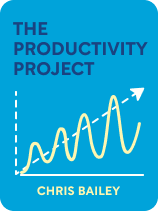

This article is an excerpt from the Shortform book guide to "The Productivity Project" by Chris Bailey. Shortform has the world's best summaries and analyses of books you should be reading.
Like this article? Sign up for a free trial here.
Why is multitasking bad for productivity? How does multitasking diminish your capacity to be productive?
While multitasking may make you feel busy, it actually eats away at your productivity. This is because multitasking requires frequent switching between different tasks, and switching is costly in terms of cognitive resources.
Here’s how multitasking hurts your productivity, according to productivity expert Chris Bailey.
Hone Your Focus
According to Chris Bailey, multitasking is the enemy of productivity. While working on multiple things at once is stimulating and makes you feel busy, numerous studies have shown that multitasking doesn’t make you more productive.
The key to productivity is focusing on one thing at a time. Monotasking allows you to invest all your time, attention, and energy into one thing, enabling you to do that one thing better and more efficiently. (Shortform note: There are many apps and website blockers that help facilitate monotasking. Try apps like Freedom or RescueTime to help you stay focused on only one thing at a time.)
| Why Is Multitasking Bad? Multitasking has a negative impact on productivity because it leads to an effect known as “switch cost,” or the mental effort expended to shift gears and readjust to the new task. Because of the mental shift required, switching between tasks can slow your overall progress and reduce your productivity. Some studies have also revealed that multitasking lowers your IQ and can even result in brain damage. While more research is necessary to understand the long-term impacts of multitasking, there’s general consensus that multitasking has negative effects on productivity and brain function. |
To become better at monotasking, Bailey recommends practicing mindfulness—noticing when your attention wanders or when you’re jumping from task to task, then practicing drawing your attention back to the task at hand. You can also practice honing your focus with intentional moments of mindfulness—like actively listening when someone is speaking to you, reading for extended periods of time, or having a daily meditation practice.
(Shortform note: In Mindfulness in Plain English, Buddhist monk Bhante Gunaratana distinguishes between mindfulness and concentration. He describes concentration as forced focus through willpower, while mindfulness is present awareness without judgment or struggle. He argues that people need both—concentration to direct your energy toward a purpose and mindfulness for holistic awareness.)
Monotasking can also be made easier by clearing up mental space. Bailey explains that if you’re constantly using your brain to try to remember things, then you have less mental space for your significant tasks. Externalizing your ideas allows you to use your brain for coming up with ideas instead of storing them. To get a clear picture of everything that needs to get done, Bailey recommends creating an everything list (which he calls a “brain dump”) where you write down every item you’ve stored in your mental task list, from buying toothpaste to applying for a business loan.
Bailey recommends a couple of ways to organize your everything list (both adapted from Getting Things Done). First, he recommends creating a list that includes anything you’re waiting on—from email responses to Amazon deliveries. He also recommends another list that includes major projects and the next immediate steps you need to take for each project.
| Other Strategies for Externalizing (and Organizing) Your Thoughts Like Bailey, Daniel J. Levitin, author of The Organized Mind, advocates externalizing your thoughts—storing information outside your brain so that you have more mental energy for important decisions, planning, and creative thinking. Levitin offers a different strategy for how to clear up mental clutter: carrying around a pack of 3×5 notecards. Every time you have a thought that’s unrelated to your current task, write it down. Before starting a significant task, you can also spend a few minutes writing down things that might steal your focus. He emphasizes the importance of putting only one idea on each card so they can be reorganized and reordered as necessary. Levitin then suggests sorting these cards at the end of the day into categories that make sense for you—for example, by urgency, topic, or time required. He recommends keeping a different colored note card at the top of each category to make it easy to find specific notecards in the future. |

———End of Preview———
Like what you just read? Read the rest of the world's best book summary and analysis of Chris Bailey's "The Productivity Project" at Shortform.
Here's what you'll find in our full The Productivity Project summary:
- A how-to book for anyone who wants to become more productive
- Why productivity isn't about doing a lot, but doing what matters
- How to hone your focus and monotask better






